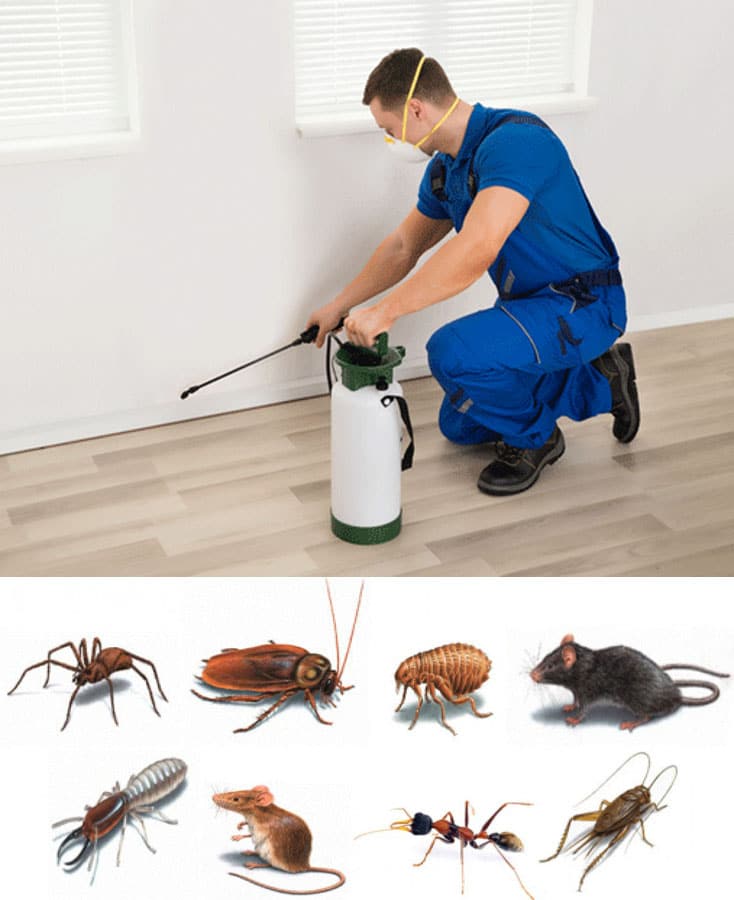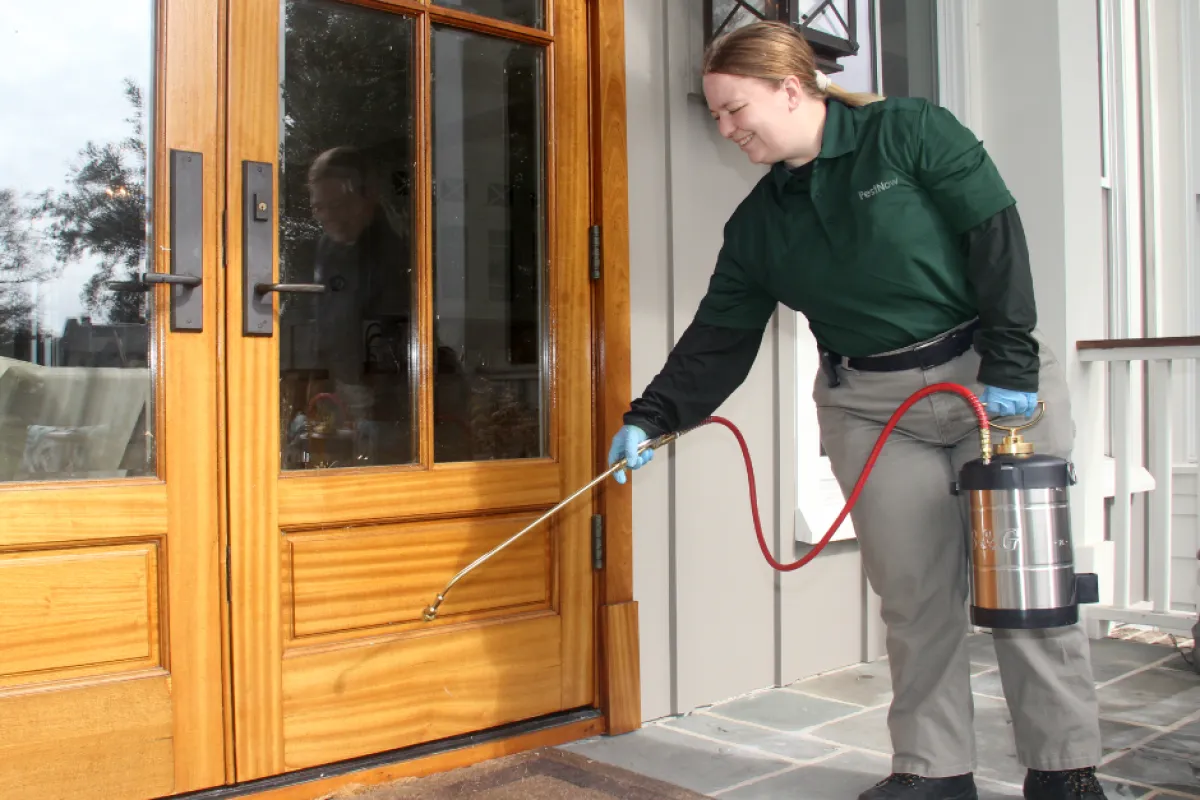Top Coquitlam Pest Control Solutions for a Rodent-Free Home
Top Coquitlam Pest Control Solutions for a Rodent-Free Home
Blog Article
Safe and Reputable Pest Control for Lasting Security
Effective bug management needs a multifaceted technique that stabilizes eco-friendly integrity with the demand for effective pest reductions. The subtleties of these approaches may not be immediately clear, motivating a better exam of the practices that can lead to sustainable parasite control end results.
Recognizing Parasite Control Techniques
Parasite control encompasses a range of approaches targeted at managing and eradicating undesirable pests and rodents that can threaten both health and wellness and residential property. Understanding these methods is important for reliable pest monitoring.
The primary categories of parasite control approaches include mechanical, organic, and chemical approaches. Mechanical approaches involve physical barriers and catches to avoid bug access and capture undesirable types. Using displays on windows or employing sticky catches can considerably decrease parasite populaces without introducing hazardous substances - exterminator coquitlam.

Chemical bug control is usually one of the most identified technique, making use of chemicals to remove insects. These chemicals can be efficient yet should be utilized with caution to prevent adverse effects on non-target types and the environment.
Advantages of Eco-Friendly Solutions
Exactly how can environment-friendly services change insect control methods? The fostering of environmentally friendly insect control techniques offers various benefits, substantially boosting the efficiency and security of bug administration (exterminator coquitlam). To start with, these options use natural active ingredients, minimizing the dependence on dangerous chemicals that can position risks to human health and the setting. This shift not only shields family pets and households yet also lessens the potential for soil and water contamination.

Another advantage is the favorable influence on neighborhood biodiversity. Environmentally friendly options are created to target certain parasites while preserving helpful insects and wildlife, promoting a balanced ecosystem. This method straightens with the growing consumer need for lasting practices, enhancing the online reputation of bug control companies.
Integrated Parasite Administration Techniques
The application of green services naturally results in the fostering of Integrated Pest Administration (IPM) techniques, which additionally enhance parasite control efficiency. IPM is a holistic technique that integrates several strategies to manage bug populations while reducing environmental effect. This approach stresses making use of biological, social, mechanical, and chemical controls, making sure a well balanced and sustainable technique of insect management.
One essential aspect of IPM is the extensive analysis of pest activity and environmental problems. By keeping an eye on pest populaces and determining their life process, specialists can apply targeted treatments that disrupt the insect's environment or lifecycle, decreasing dependence on webpage chemical pesticides. In addition, social techniques such as plant turning and environment manipulation can dramatically decrease insect facility and recreation.
An additional critical part is the use of organic control agents, such as helpful bugs or microbes, which can naturally reduce parasite populaces. When chemical applications are necessary, IPM focuses on using low-risk pesticides and applies them uniquely, reducing direct exposure to non-target organisms and people.
Integrating IPM approaches not just boosts pest control effectiveness yet likewise promotes a much safer environment, straightening with the growing need for sustainable techniques in parasite management.
Safe Practices for House Owners
Understanding the relevance of secure techniques in parasite control can encourage homeowners to effectively handle bug problems while guarding their health and the setting. Executing precautionary measures and non-toxic methods is critical in decreasing direct exposure to damaging chemicals.
Home owners must initially analyze their setting for conditions that draw in pests, such as standing food, mess, and water waste. Frequently cleaning and sealing entry factors can hinder parasites from attacking the home. Using all-natural deterrents, such as essential oils or diatomaceous planet, can supply effective alternatives to chemical pesticides.
When chemical therapies are required, property owners ought to decide for products that are particularly labeled as secure for residential usage. It is important to follow application guidelines meticulously to avoid too much exposure. Using how to kill ants targeted treatments in locations where parasites are identified, instead than blanket spraying, can substantially reduce chemical use.
Last but not least, keeping open interaction with bug control specialists is important. Home owners ought to ask about the safety and security of items utilized and request environmentally friendly choices whenever possible. By taking on these secure practices, homeowners can develop a much healthier living environment while properly taking care of bug issues.

Tips for Long-Term Security
Developing a pest monitoring technique that emphasizes long-term defense can greatly improve the performance of the secure methods formerly gone over. To achieve this, property owners ought to implement regular inspections of their residential or commercial property, concentrating on hidden locations such as attic rooms, cellars, and crawl rooms. Early discovery of parasite task is essential in protecting against problems from taking hold.
In addition, keeping a tidy atmosphere is essential. This consists of correct food storage space, immediately cleansing spills, and routinely dealing with waste. These practices reduce attractants that attract bugs into the home. Securing entrance points, such as fractures around doors and windows, can efficiently obstruct potential parasite gain access to.
Landscape design should likewise be thought about; maintaining plants cut and maintaining a distance between plant life and the home minimizes hiding places for parasites. Using natural deterrents, such as essential oils or diatomaceous earth, can better inhibit invasions without turning to severe chemicals.
Finally, teaming up with an expert parasite control solution for periodic assessments can provide an additional layer of safety. These specialists can use tailored suggestions and advanced therapies, guaranteeing that your home remains protected versus pests in the long term.
Final Thought
To conclude, dependable and risk-free bug control calls for a complex approach that emphasizes environment-friendly approaches and incorporated parasite monitoring. By implementing natural deterrents, performing routine evaluations, and preserving appropriate cleanliness, building owners can considerably reduce bug populations while shielding advantageous insects and the environment. Collaboration with professional bug control services improves the efficiency of these methods, guaranteeing customized options that offer long lasting security and comfort against future problems.
Efficient bug management needs a multifaceted strategy that balances ecological stability with the need for reliable parasite reductions. The fostering of environment-friendly parasite control methods Website supplies numerous benefits, significantly boosting the performance and safety of parasite administration.The application of environmentally friendly solutions naturally leads to the fostering of Integrated Bug Management (IPM) methods, which further improve pest control efficacy. exterminator coquitlam. By checking insect populations and determining their life cycles, practitioners can execute targeted interventions that interrupt the insect's habitat or lifecycle, minimizing reliance on chemical pesticides.In verdict, secure and reliable insect control needs a complex technique that highlights eco-friendly techniques and incorporated parasite monitoring
Report this page